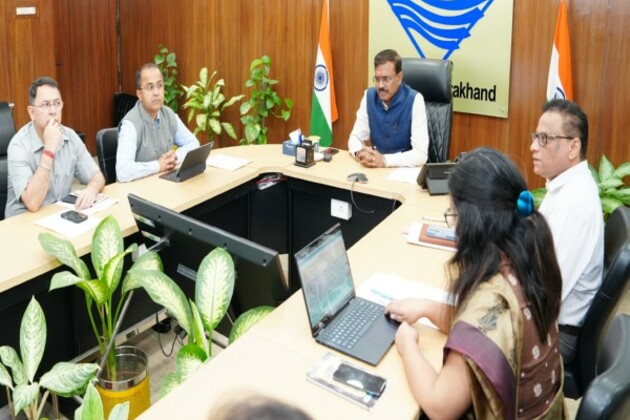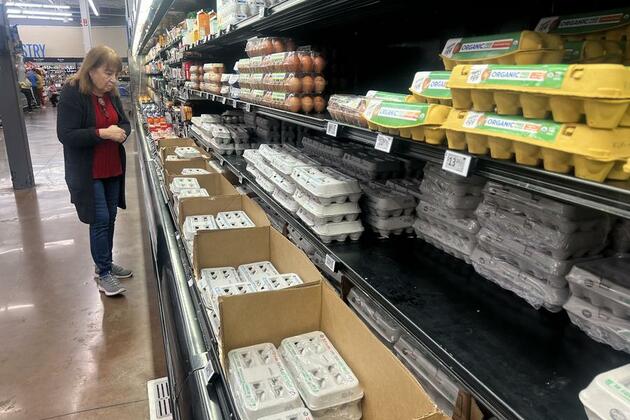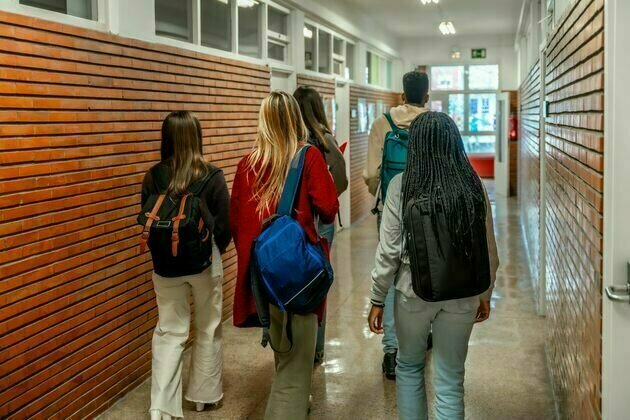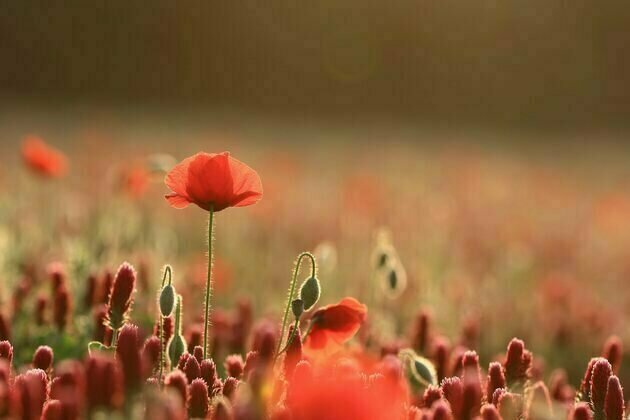Good news, beach lovers: our research found 39% less plastic waste around Australian coastal cities than a decade ago
The Conversation
03 Apr 2025, 07:49 GMT+10
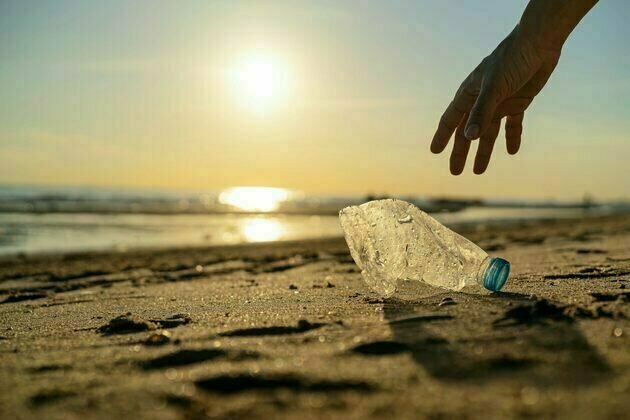
Picture this: you're lounging on a beautiful beach, soaking up the sun and listening to the soothing sound of the waves. You run your hands through the warm sand, only to find a cigarette butt. Gross, right?
This disturbing scene is typical of coastal pollution in Australia. But fortunately our new research shows the problem is getting better, not worse. Over the past ten years, the amount of waste across Australian coastal cities has reduced by almost 40%. We're also finding more places with no rubbish at all.
We surveyed for debris in and around six Australian urban areas between 2022 and 2024. Then we compared our results to previous surveys carried out a decade ago. We found less coastal pollution overall and reset a new baseline for further research.
Our study shows efforts to clean up Australia's beaches have been working. These policies, practices and outreach campaigns have reduced the extent of pollution in coastal habitats near urban centres. But we can't become complacent. There's plenty of work still to be done.
In Australia, three-quarters of the rubbish on our coasts is plastic. Even cigarette butts are mainly made of plastic.
To tackle the pollution effectively, we need to understand where the waste is coming from and how it gets into the environment.
Research has shown much of the coastal debris comes from local inland areas. Poor waste management practices can result in debris eventually making its way through rivers to the coast and out to sea.
We focused on urban areas because high population density and industrial activity contributes to waste in the environment. We examined six areas across Australia:
These places represent a starting point for the national baseline. At each location we studied sites on the coast, along rivers and inland, within a 100 kilometre radius.
We inspected strips of land 2m wide. This involved two trained scientists standing in an upright position looking downward, slowly walking along a line surveying for debris items. Together they captured information about every piece of debris they came across, including the type of material and what it was originally used for (where possible).
On average, we found 0.15 items of debris per square metre of land surveyed. That's roughly one piece of rubbish every five steps.
Plastic was the most common type of waste. But in many cases it was unclear what the item was originally used for. For example, fragments of hard plastic of unknown origin were found in a quarter of all surveyed areas.
Polystyrene fragments were the most common item overall (24% of all debris fragments). Other frequently encountered items included food wrappers or labels, cigarette butts, and hard plastic bottle caps or lids.
We found more waste near farms, industry and disadvantaged areas.
The types of waste varied among cities. For example, cigarette butts were the most prevalent items in Newcastle, Perth and the Sunshine Coast. But food wrappers and beverage cans were more prevalent in Port Augusta and Alice Springs, respectively.
Hobart had the highest occurrence of beverage bottles and bottle fragments.
Identifying the different types of litter in the environment can help policymakers and waste managers target specific items and improve waste recovery.
Research has shown container deposit legislation, which enables people to take eligible beverage containers to a collection point for a refund, has reduced the number of beverage containers in the coastal environment by 40%. Hobart did not have a container deposit scheme in place at the time of our survey.
Plastic bag bans can reduce bag litter. Now polystyrene food service items are becoming increasingly targeted by policymakers.
When we compared our results to the previous survey from 2011-14 we found a 39% decrease in coastal debris. We also found 16% more areas where no debris was present.
Our results support previous research that found an ongoing trend towards less waste on Australian beaches.
We think our research demonstrates the effectiveness of improved waste management policies, campaigns such as the "Five R's - Refuse, Reduce, Reuse, Repurpose, then Recycle" - as well as clean-up efforts.
It's likely that increased awareness is making a big dent in the problem. But reducing the production of plastic, and invoking changes further up the supply chain, would likely further help reduce mismanaged waste in the environment.
Measuring and monitoring litter can inform policymaking and waste management. Our research serves as a benchmark for evaluating and informing future efforts to reduce plastic waste.
We are heartened by the findings. But continued effort is needed from people across government, industry and Australian communities. Everyone needs to address how we produce, use and dispose of plastic for a cleaner and healthier planet.
 Share
Share
 Tweet
Tweet
 Share
Share
 Flip
Flip
 Email
Email
Watch latest videos
Subscribe and Follow
Get a daily dose of Perth Herald news through our daily email, its complimentary and keeps you fully up to date with world and business news as well.
News RELEASES
Publish news of your business, community or sports group, personnel appointments, major event and more by submitting a news release to Perth Herald.
More InformationInternational Business
SectionTo meet US AI energy surge, Schneider Electric invests $700 million
ANDOVER, Massachusetts: As artificial intelligence drives up energy demand across the United States, Schneider Electric is making a...
Chief Secretary Anand Bardhan holds meeting related to World Bank-assisted Uttarakhand Water Supply Program in peri-urban areas
Dehradun (Uttarakhand) [India], April 3 (ANI): In view of saving electricity expenditure on tubewells across the state, Uttarakhand...
Xinhua Commentary: Washington's tariff rampage is self-defeating bullying
U.S. President Donald Trump attends an event celebrating the Greek Independence Day at the White House in Washington, D.C., the United...
Column: U.S. trade policies fuel concerns about recession
This photo taken with a mobile phone on Feb. 7, 2025 shows a customer shopping for eggs at a Walmart in El Monte, Los Angeles County,...
INRO Summit 2025: Expanding Horizons for Businesses Across Continents
HT Syndication New Delhi [India], April 2: The Union of Bilateral Chambers of Commerce from Romania in India (UBCCR) unveils the...
NCAER DG Poonam Gupta appointed as RBI Deputy Governor
New Delhi [India], April 2 (ANI): Poonam Gupta, currently the Director General of the National Council of Applied Economic Research...
Australia
SectionSurvey shows ALP would win Federal election if held now
MELBOURNE, Victoria - If a federal election were held today, the Australian Labor Party (ALP) would be re-elected with an increased...
Good news, beach lovers: our research found 39% less plastic waste around Australian coastal cities than a decade ago
Picture this: you're lounging on a beautiful beach, soaking up the sun and listening to the soothing sound of the waves. You run your...
Grattan on Friday: Trying too hard for a special tariff deal with Trump could be the wrong way to go
Prime Minister Anthony Albanese and Opposition Leader Peter Dutton both agree Australia should react to US President Donald Trump's...
'Australia doesn't care about me': women international students suffering alarming rates of sexual violence
Every year, more than 700,000 international students leave their homes to study in Australia. Around half are women. For most...
Matt Kuhnemann's rollercoaster start to 2025 ends with central contract
Melbourne [Australia] April 2, (ANI): The beginning of 2025 has been nothing short of unforgettable for Matt Kuhnemann. What started...
Australia and New Zealand are plagued by 'tall poppy syndrome'. But would a cure be worse than the disease?
The original tall poppies bloomed in the garden of Tarquin the Proud, last king of Rome. To communicate that his enemies should be...


